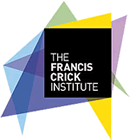About the Project
This 4-year PhD studentship is offered in Dr Patricia Barral’s Group based at the Francis Crick Institute (the Crick) & Prof Franca Fraternali’s Group based at King’s College London.
Humans carry 10 times more bacteria in the intestine than total cells constituting the body. These commensal bacteria influence health and disease through complex interactions with the immune system. Alterations in the crosstalk between commensals and immune cells can lead to the development of inflammatory and autoimmune diseases including asthma, multiple sclerosis and inflammatory bowel disease (IBD). This project seeks to understand the mechanisms that control the crosstalk between commensals and immune cells and how those modulate health and disease. We will focus in a population of intestinal T cells (called NKT cells) that recognize lipids through their T cell receptors (TCR). NKT cells respond to lipids from commensal bacteria and collaborate to control commensals in the healthy intestine,
but they also accumulate in the intestine of IBD patients contributing to the onset and/or progression of the disease. In this project we will investigate how the crosstalk between commensal bacteria and NKT cells regulates intestinal homeostasis and IBD. NKT cells recognize lipids presented by the surface molecule CD1, however their TCR repertoire is less variable than that of conventional T cells. Nonetheless variations in the
NKT cell repertoire have been shown to impact the lipid recognition capacity and the functional outcomes during an immune response. In this project we will investigate whether the intestinal NKT cell-TCR repertoire is shaped by commensal lipids and whether changes in TCR specificity contribute to the progression of IBD. We will isolate NKT cells from the tissues of mice and humans and use high throughput sequencing and single cell TCR amplification to define the repertoire and specificity of NKT cells. We will perform analyses of the TCR repertoire, physico-chemical properties and molecular modeling for cells isolated from various tissues and conditions (i.e. health vs. IBD vs. antibiotic treatment) to identify the factors regulating the NKT cell-TCR repertoire within the intestine. To complement these experiments, we will perform retroviral transduction of selected TCRs and co-culture experiments with various commensal-derived lipids to define the specificity of intestinal NKT cells and how this is altered in IBD. Finally, we will
take advantage of transgenic mice and experimental models of intestinal inflammation to define the functional relevance of NKT cell-commensal specificity in vivo and the mechanisms leading to NKT cell activation in IBD. These experiments will provide insight into the mechanisms of inflammatory diseases and will guide the search for new therapies.
Talented and motivated students passionate about doing research are invited to apply for this PhD position. The successful applicant will join the Crick PhD Programme in September 2018 and will register for their PhD at King’s College London.
Applicants should hold or expect to gain a first/upper second-class honours degree or equivalent in a relevant subject and have appropriate research experience as part of, or outside of, a university degree course and/or a Masters degree in a relevant subject.
APPLICATIONS MUST BE MADE ONLINE VIA OUR WEBSITE BY 12:00 (noon) NOVEMBER 14 2017. APPLICATIONS WILL NOT BE ACCEPTED IN ANY OTHER FORMAT.
https://crick.ac.uk/about-us/jobs-and-study/phd-programme/
References
1. Saez de Guinoa, J., Jimeno, R., Farhadi, N., Jervis, P. J., Cox, L. R., Besra, G. S. and Barral, P. (2017)
CD1d-mediated activation of group 3 innate lymphoid cells drives IL-22 production.
EMBO Reports 18: 39-47.
2. Barral, P., Sánchez-Niño, M. D., van Rooijen, N., Cerundolo, V. and Batista, F. D. (2012)
The location of splenic NKT cells favours their rapid activation by blood-borne antigen.
EMBO Journal 31: 2378-2390.
3. Barral, P., Polzella, P., Bruckbauer, A., van Rooijen, N., Besra, G. S., Cerundolo, V. and Batista, F. D. (2010)
CD169+ macrophages present lipid antigens to mediate early activation of iNKT cells in lymph nodes.
Nature Immunology 11: 303-312.
4. Laffy, J. M. J., Dodev, T., Macpherson, J. A., Townsend, C., Lu, H. C., Dunn-Walters, D. and Fraternali, F. (2017)
Promiscuous antibodies characterised by their physico-chemical properties: From sequence to structure and back.
Progress in Biophysics and Molecular Biology 128: 47-56.
5. Chung, S. S., Pandini, A., Annibale, A., Coolen, A. C. C., Thomas, N. S. B. and Fraternali, F. (2015)
Bridging topological and functional information in protein interaction networks by short loops profiling.
Scientific Reports 5: 8540.

 Continue with Facebook
Continue with Facebook

